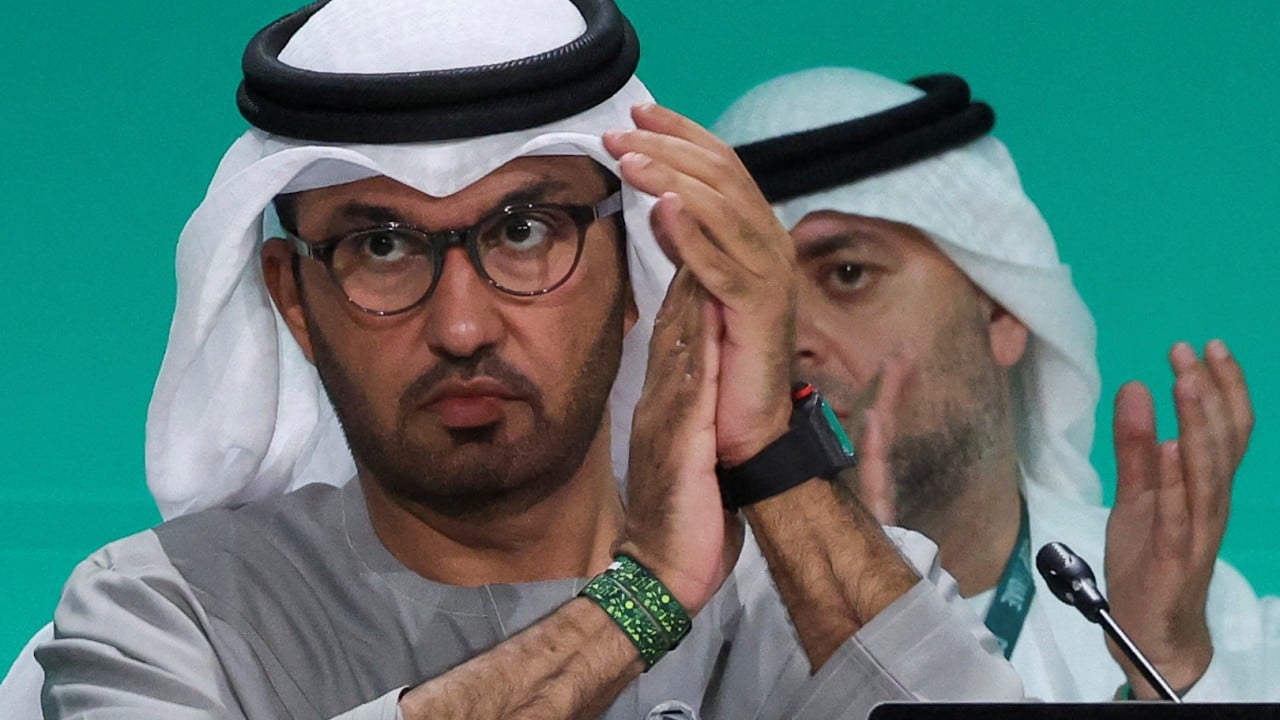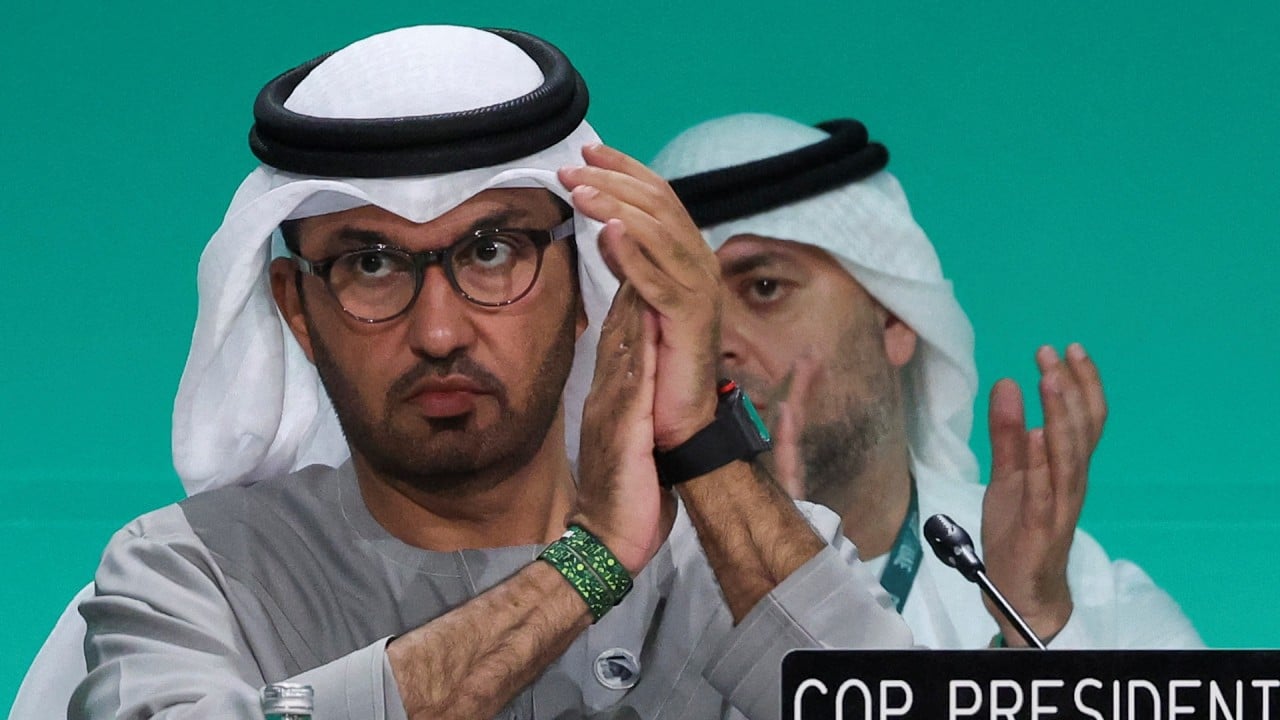Opec’s move to end voluntary oil output cuts risks flooding the market, analysts warn, threatening the Cop28 climate deal’s shift to green energy – a critical step in fighting global warming.
“It’s unthinkable to raise production of polluting energy when the majority of oil, gas and coal in existing fields and mines must stay underground to keep warming to globally agreed limits,” said David Tong, Wellington-based global industry campaign manager at Oil Change International, an advocacy organisation involved in the clean energy transition.
The voluntary output cuts by Opec+ members were expected to be extended until the end of this year, but the consortium announced earlier this month it would gradually phase out its cuts of 2.2 million barrels per day over the course of a year, starting in October, to appease some members.
The International Energy Agency forecast this month that global oil capacity in 2030 may exceed demand, which could lead to a bearish trend for oil prices. Opec has not specified a timeline for production increases, but has stated that its actions will depend on market conditions.
Oil prices, which are influenced by many factors besides supply and demand, have edged higher this week to around US$85 per barrel on hopes the US Federal Reserve will cut interests rate to reverse losses in the wake of the Opec agreement.
“Though it won’t stop the growth of renewable energy, there is a risk Opec’s move may lock-in further investment and dependence on oil and gas in some regions,” Tong said, adding there is little room for the expansion of oil, gas and coalfields if the world seeks to limit global warming.
In line with Cop28 goals, governments, including the twelve Opec countries, must act to phase out fossil fuels starting now
An August report by Oil Change International warned that extracting current oil and gas reserves would emit 25 per cent more carbon than the 1.5 degrees Celsius (2.7 degrees Fahrenheit) warming target. Existing fields and mines already hold enough fossil fuels to surpass 2 degrees warming, rendering parts of the planet uninhabitable, it said.
While the United Nations’ Climate Change Conference (Cop28) recognised the need for “transitioning away” from fossil fuels in December, participating countries failed to agree on a timeline for the phase out due to resistance from oil- and gas-producing countries in the Middle East and beyond.
“In line with Cop28 goals, governments, including the twelve Opec countries, must act to phase out fossil fuels starting now,” Tong said.
Opec’s decision comes amid the Ukraine-Russia and Israel-Gaza wars, raising concerns that major producers like Russia and Middle East nations may pump more oil and gas to finance the heavy conflict costs.
While Russia is not an Opec member, it has in the past coordinated its oil production in line with the group to ensure price stability.
Analysts expect oil demand to gradually taper as falling renewable costs undercut fossil fuel profit margins, despite fears of increased production.
Renewables capacity is set to increase in the oil-rich Middle East in coming years, where green energy is expected to surpass fossil fuels in domestic energy consumption by 2040, according to a Rystad Energy report published at the end of last month.
But analysts said oil and gas production in the region was unlikely to decline as more fossil fuels are exported to other countries, including energy-hungry nations in Asia, and other parts of the world.
Missing green energy action
Blaming Opec alone for climate change would be shortsighted, said Dhruba Purkayastha of the Council for Energy Environment and Water think tank in New Delhi, as its focus is on managing supply and demand in its own markets.
“On the face of it, Opec’s decision appears to be running contrary to climate goals,” he said, noting the cartel’s members were spread across diverse regions. “But the real problem is that global renewable capacity has not seen adequate growth despite Cop pledges.”
More than 100 countries pledged at Cop28 to triple renewable capacity by 2030, but little action followed, Purkayastha said.
“There is practically no pipeline for renewable energy outside of India, China and Brazil,” he said, noting that the US also appears to be making progress.
At their recent June 13-15 meeting, G7 leaders reiterated the Cop28 pledge to transition from fossil fuels, but failed to clarify key climate goals, Purkayastha said.

The G7 meeting was also attended by other world leaders, including Saudi Arabia’s Crown Prince Mohamed Bin Salman and Indian Prime Minister Narendra Modi.
Luca Bergamaschi, co-founder of ECCO, an Italian climate change think tank, said that the meeting missed out on “plans and timelines to phase out oil and gas investment and production”.
Analysts say the urgency for climate action has been underscored by Asia’s unprecedented heatwaves, as one of the regions most vulnerable to climate change.
“We need to act as a global fraternity because we have limited time to bend the emissions curve. That means we need a new paradigm of multilateral action,” Purkayastha said.



